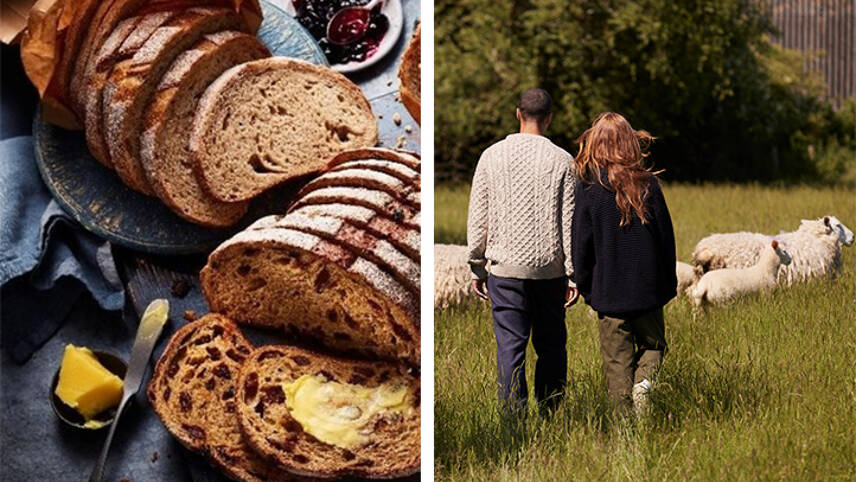Register for free and continue reading
Join our growing army of changemakers and get unlimited access to our premium content

Regenerative supply chains are those which provide a net benefit to nature
Marks & Spencer’s (M&S) new loaves, which went on sale in 500 UK stores this week, have been made in collaboration with flour company Wildfarmed. In the coming weeks, the range of four loaves will be made available online on Ocado as well.
Wildfarmed claims that it grows the grains to produce its flours in a way that “puts soil health first”. Pesticides, fungicides and herbicides are not used and regenerative practices, such as the planting of different kinds of plants in crop fields (known as bi-cropping or polycropping), are implemented.
Wildfarmed has a network of 35 member farms in the UK and seven in France. Farmers receive a financial incentive for the quality of their grain and also for being able to evidence progress such as improved soil health or increased biodiversity.
M&S will be the first UK supermarket to stock Wildfarmed breads.
“This is where things get really interesting; by working together with M&S we are able to transform vast areas of farmland from destructive chemical-based systems to regenerative systems that heal the land,” said Wildfarmed’s co-founder George Lamb.
“Our partnership with M&S heralds a new chapter not only for Wildfarmed, but for businesses who want to be on the right side of history. By choosing to work with Wildfarmed, M&S are supporting an initiative that is bringing together farmers, food businesses and consumers to make agriculture a solution to the climate crisis, rather than a contributor.”
The Climate Change Committee’s (CCC) most recent progress report to Parliament revealed that agriculture is responsible for some 12% of the UK’s annual greenhouse gas emissions. Progress to reduce emissions from the sector, the Committee warned, has plateaued. Without accelerated progress in the future, the sector’s emissions could undermine the UK’s ability to meet its legally binding carbon budgets.
Wooling out all the stops
In related news, heritage knitwear brand Peregrine has committed to transitioning to 100% regeneratively sourced wool by 2026. It will use 20% regenerative wool this year, 40% in 2023, and so on.
The British brand has procured all of its wool from the UK throughout its 220-year history and will continue to do so. As such, it will need to grow the production capacity of British regenerative wool.
Peregrine has, therefore, partnered with the certification body Pasture for Life. The body certifies wool, meat and dairy products from animals that have never been given anything to eat except their mother’s milk and grass throughout their lives. To date, it has attracted some 900 members.
Farmers will be encouraged to implement practices such as polycropping and cover cropping, as well as mob grazing. This refers to the practice of allowing animals to graze in one place, in a high density, for a short amount of time. They are then moved on and the grass is given a longer-than-usual amount of time to recover.
Peregrine has also joined Textile Exchange, to share information and gather learnings, and partnered with Soil Mentor, to implement digital training and advice for farmers looking to improve soil health.
Peregrine’s managing director Tom Glover said: “The UK is one of the most nature-depleted countries in the world and we are supporting farmers working to turn this story around. Through our work with Pasture for Life and Soil Mentor, we are able to make a difference at the farm level and help drive the national movement towards more nature-friendly farming practices.”


Please login or Register to leave a comment.